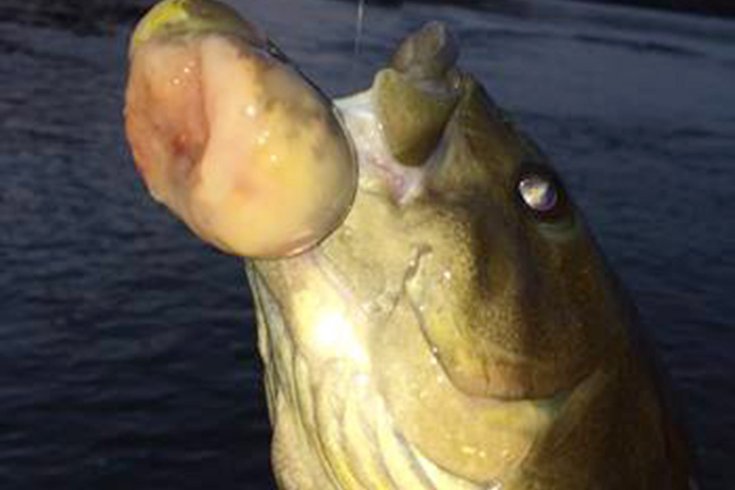Tests have confirmed the malignancy of a tumor on a smallmouth bass caught last year in the middle Susquehanna River, north of Harrisburg.
Two independent laboratory tests confirmed the cancerous tumor on the fish caught in November 2014, according to the Pennsylvania Fish and Boat Commission, which said cancerous growths and tumors on fish are extremely rare in Pennsylvania and throughout the United States.
“We’ve known the [Susquehanna] river has been sick since 2005, when we first started seeing lesions on the smallmouth. Now we have more evidence to further the case for impairment.” – John Arway, executive director, Pa. Fish and Boating Commission
This is the first documented case of this type of tumor being found on a smallmouth bass in Pennsylvania. The finding was confirmed by the U.S. Fish and Wildlife Service and the Aquatic Animal Health Laboratory at Michigan State University, the PFBC said.
In a statement, John Arway, executive director of the commission, said that while the case represents a single fish from the overall population, it provides additional evidence that the health of fish in the river is being compromised.
“As we continue to study the river, we find young-of-year and now adult bass with sores, lesions and more recently a cancerous tumor, all of which continue to negatively impact population levels and recreational fishing,” he said. “The weight-of-evidence continues to build a case that we need to take some action on behalf of the fish.”
As part of routine surveys in the Susquehanna River basin, PFBC biologists continue to find sores and lesions on young-of-year bass during late spring and early summer surveys at alarming rates.
Disease-related mortality of young-of-year smallmouth bass was first documented by PFBC in the Susquehanna River in 2005. It has contributed to a decline in the species. Since 2012, PFBC said it has unsuccessfully petitioned the state Department of Environmental Protection (DEP) to add the river to the state’s bi-annual list of impaired waterways.
“The impairment designation is critical because it starts a timeline for developing a restoration plan,” said Arway. “We’ve known the river has been sick since 2005 when we first started seeing lesions on the smallmouth. Now we have more evidence to further the case for impairment.”
Dr. Karen Murphy, the acting secretary of the Pennsylvania Department of Health, said: “There is no evidence that carcinomas in fish present any health hazard to humans. However, people should avoid consuming fish that have visible signs of sores and lesions."

 Credit/John Arway
Credit/John Arway